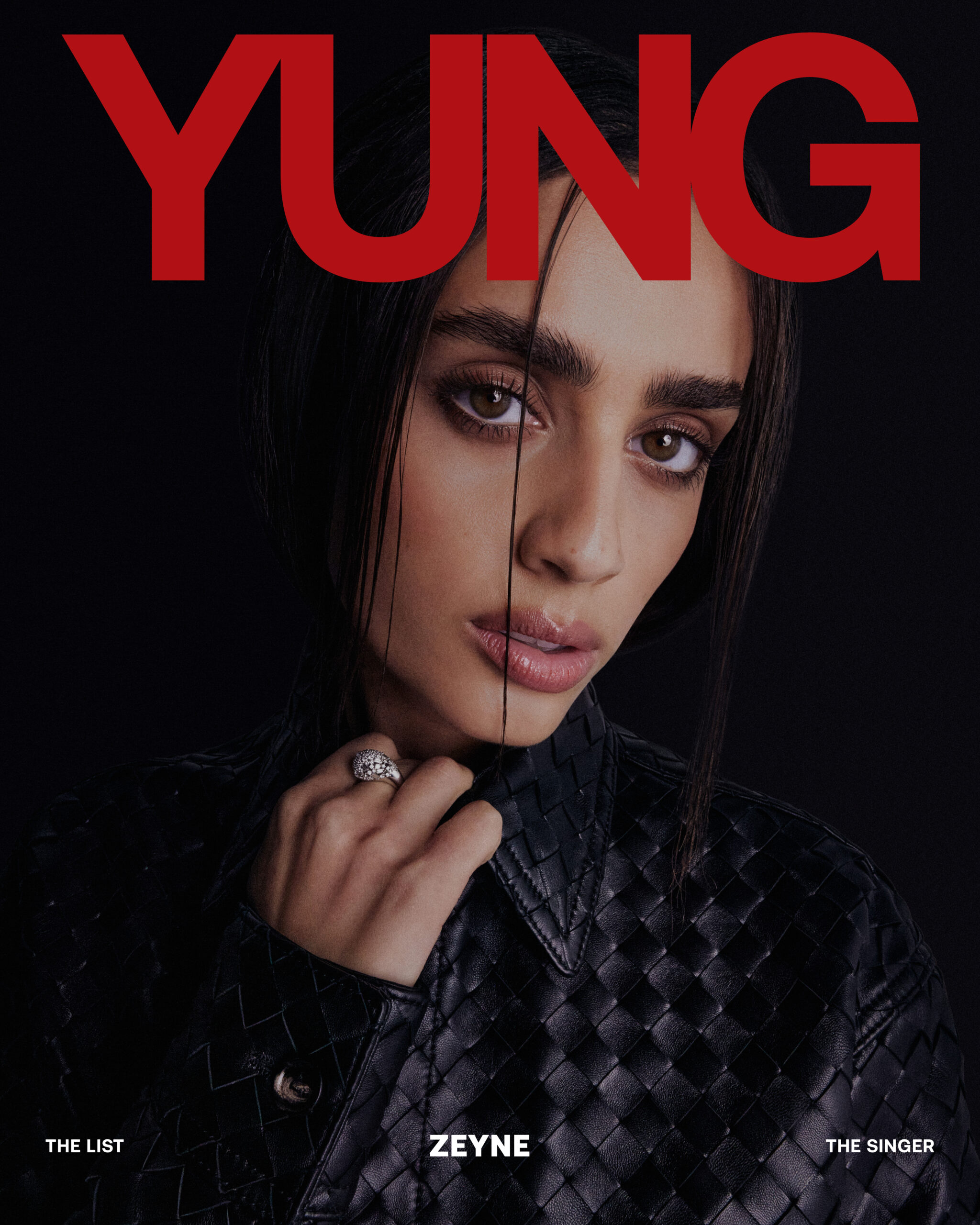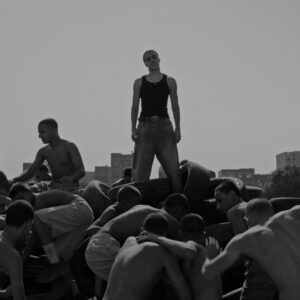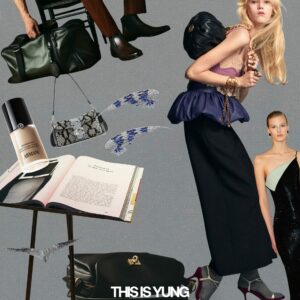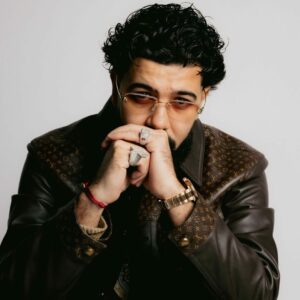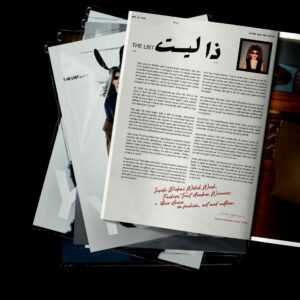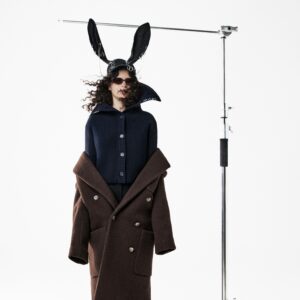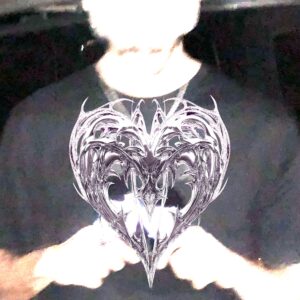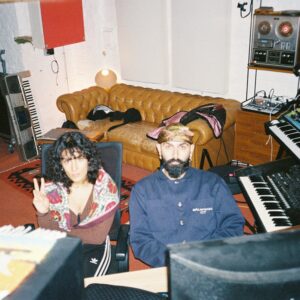Zeyne, her eyes, piercing yet unguarded, seem to reach through the screen, breaking out of the digital space to meet ours. There’s urgency in her gaze. She demands your attention, holding it in a way that compels you to reciprocate. Zeyne’s eyes have always been a quiet force in her visual storytelling— always in constant communication, speaking a language of their own.
In Mish Asfeh, a post-breakup anthem from 2021, she holds that gaze almost unbroken for nearly the entire video, her eyes animated and flickering with emotion. If eyes are windows to the soul, Zeyne’s reveal the depth of what she holds inside. In her latest music video for Asli Ana, Zeyne’s eyes meet ours again, locking us in. This time, they speak of Palestine—sometimes heavy with pain, sometimes charged with anger, always resolute.

“Asli Ana was my way of trying to reclaim my connection to my Palestinian identity, if in a small way, the beauty, strength, humanity, resilience and excellence of our people. To me, it’s not just about existence, it’s about embracing and owning our identity in our image,” she says.
Asli Ana is bold and honest. Straight from the heart and charged with urgency, it reframes what it means to hold onto and celebrate Palestinian identity. Though it does confront the ways in which Western systems have attempted to erase and rewrite histories, it goes beyond just being a critique of colonialism. It shifts the focus entirely, refusing to centre the oppressors or their frameworks. Instead, Zeyne’s work becomes a space for reclamation—where language, customs, and stories are preserved and celebrated. There’s an intimacy to the song that hits home, threading in subtle nods to the things that bind people to their heritage—rituals, textures, rhythms, and symbols of belonging.

It’s a thoughtful, deliberate act of honouring what has endured. Culture isn’t static or fragile, but alive and evolving, even under pressure. By centring her heritage with such clarity and purpose, Zeyne ensures it’s seen and heard on her terms, creating a connection that feels as much about collective memory as it does about personal identity.
Zeyne’s eyes might be windows to her soul, but they also mirror her evolution as an artist. There was a time when her gaze was less bold, less assured. When I first spoke to Zeyne in March 2023 for her first cover story, it felt like she was on the brink of something transformative. She had just changed her Instagram handle from @whoiszeyne to @zeyne—a quiet yet assertive declaration of self. Once a shy girl who hid half her face while singing covers, she was now finding her wings, writing and singing her own words. As she moved toward creating original music, she seemed to shed that hesitancy. This transition to songwriting and recording helped her grow, and to believe in herself. Each song, each studio session and performance, felt like a step closer to fully owning her voice.
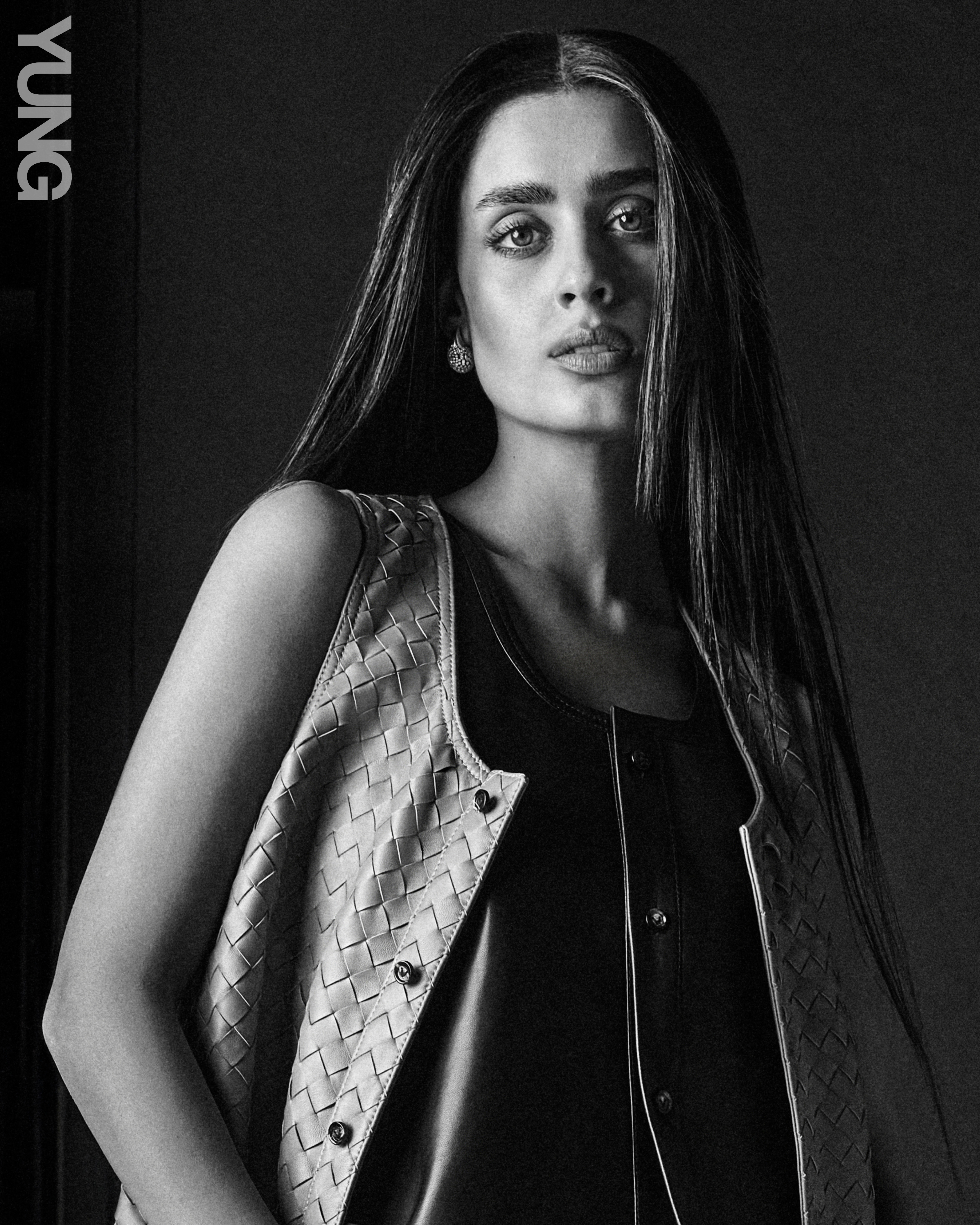
This past year and a half has seen Zeyne fully go through the motions of this magnificent metamorphosis, dazzling the cameras, putting out hit after hit, exuding confidence and grace, fine-tuning her stage presence, taking command of audiences with an enchanting aura. This transformation came into full bloom at her performance for WAVES by Bottega Veneta in Dubai, a career-defining moment in a whirlwind year. Designed by Lebanese architect Carl Gerges, the venue featured concentric seating and sand-toned textures, evoking the beauty of the desert. Her performance, like her music, carries an emotional weight. “When I’m on stage, I go back to the person I was when I wrote each song,” she says. “Mixing that with the energy of an audience takes me somewhere else.” In this setting, Zeyne felt like an organic extension of the surroundings—her movement, her voice, and her energy blending with the venue’s minimalistic elegance. In every performance, she embodies her music in a way that feels visceral and immediate.
Sharing the stage with Palestinian-Canadian artist Nemahsis, Zeyne curated a performance that felt like a narrative arc. “We approached this show very differently,” Zeyne explains. “My musical director Nasir AlBashir and I curated the set in a way that felt continuous, a wave of emotions tied into a story. I wanted the audience to feel like we knew each other a little bit better by the end of the performance. The themes of the performance were loss, love, heartbreak, self-love and identity, where I ended it with a Dabkeh, which definitely felt very liberating.”
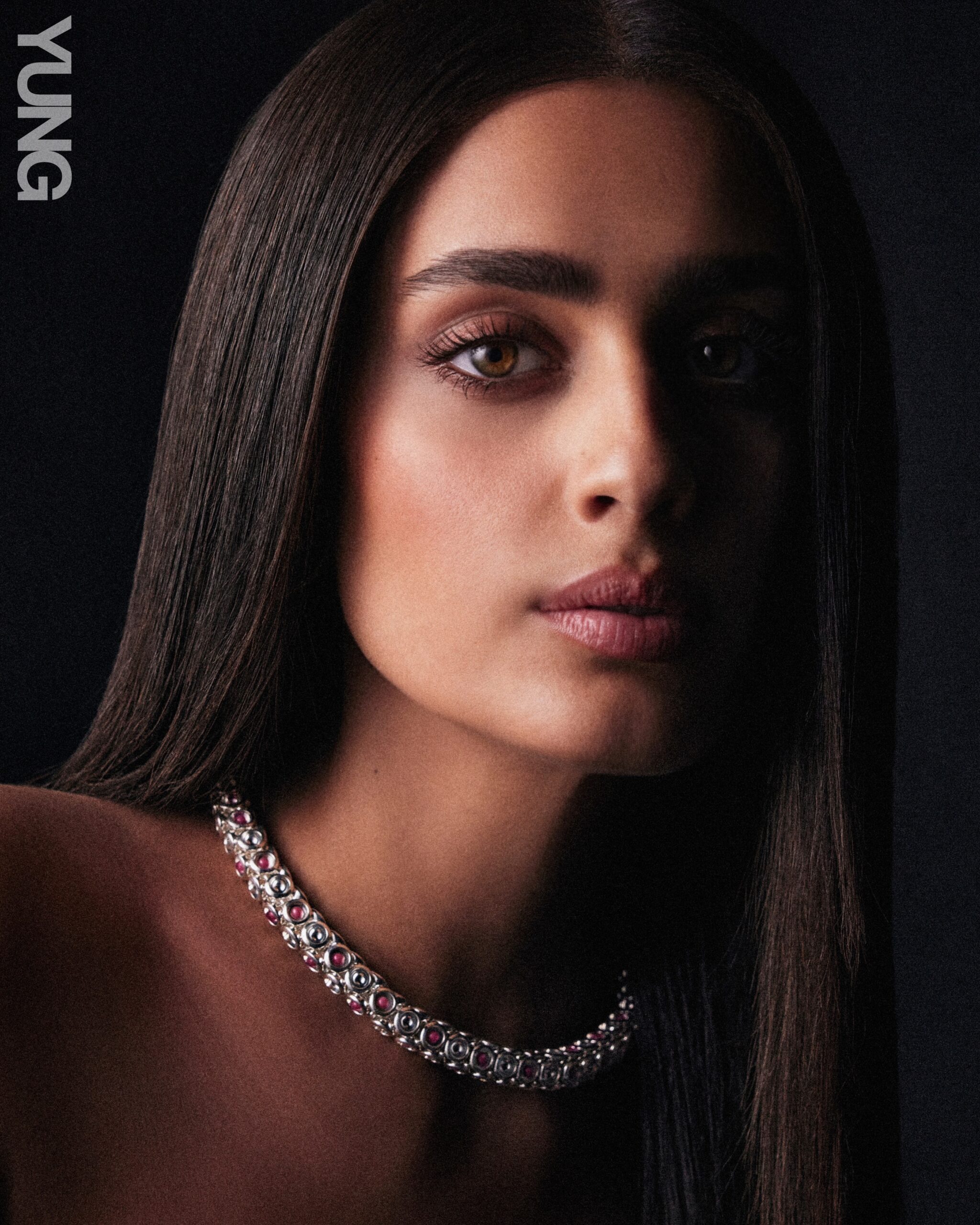
This performance marked another chapter in Zeyne’s impressive run over the past year and a half. From releasing chart-topping tracks to refining her craft, she’s emerged as an artist who knows how to balance substance with spectacle. At Waves, she proved she belongs on stages like these, where her voice and message can take over.
Her music stands at the intersection of R&B and Arabic pop, a blend that feels so natural but also groundbreaking. “R&B has always been one of my favourite styles of music,” she says. “One of the things I love most about it is how versatile it can be sonically. You can go anywhere from club tracks to ballads, whilst being authentically in the genre, and so it leaves a lot of room to express based on what you feel in the time of writing. It also gave me the room to bring in different elements of Arabic music and integrate them in several ways. I love that I can keep developing my sound without it feeling played out.”
This year, she brought that sound to COLORS with Ma Bansak, which was a dream come true for Zeyne. “During my uni years in Brighton, watching COLORS was one of my favourite things,” she recalls. “When I got the opportunity, it felt surreal. Right before performing, it was like a fever dream—‘Don’t mess this up,’ ‘I can’t believe this is happening,’ and ‘I’m so happy to be here’ were all running through my head at once.” The performance was a full-circle moment, one that reflected years of hard work and perseverance.

Zeyne’s rise comes at a time when the music industry in the region is gaining momentum, something she tries to navigate with clarity and integrity. “I think there’s a lot of talented people out there, but in my experience you quickly realize that that only takes you so far if you want to turn this into a career,” she notes. “I feel like the most important factors for my career were having a vision, staying true to yourself, being resilient, a strong work ethic, and having the right people around you.”
This clarity has allowed Zeyne to make thoughtful decisions about her music and platform, particularly in a year defined by global reckonings. “None of us thought it would be possible for the war in Palestine to go on for this long,” she says. “It made me reflect on how I want to move forward—music is important, but I’ve been mindful of the timing for certain releases, what I’m saying, and where I’m performing.”
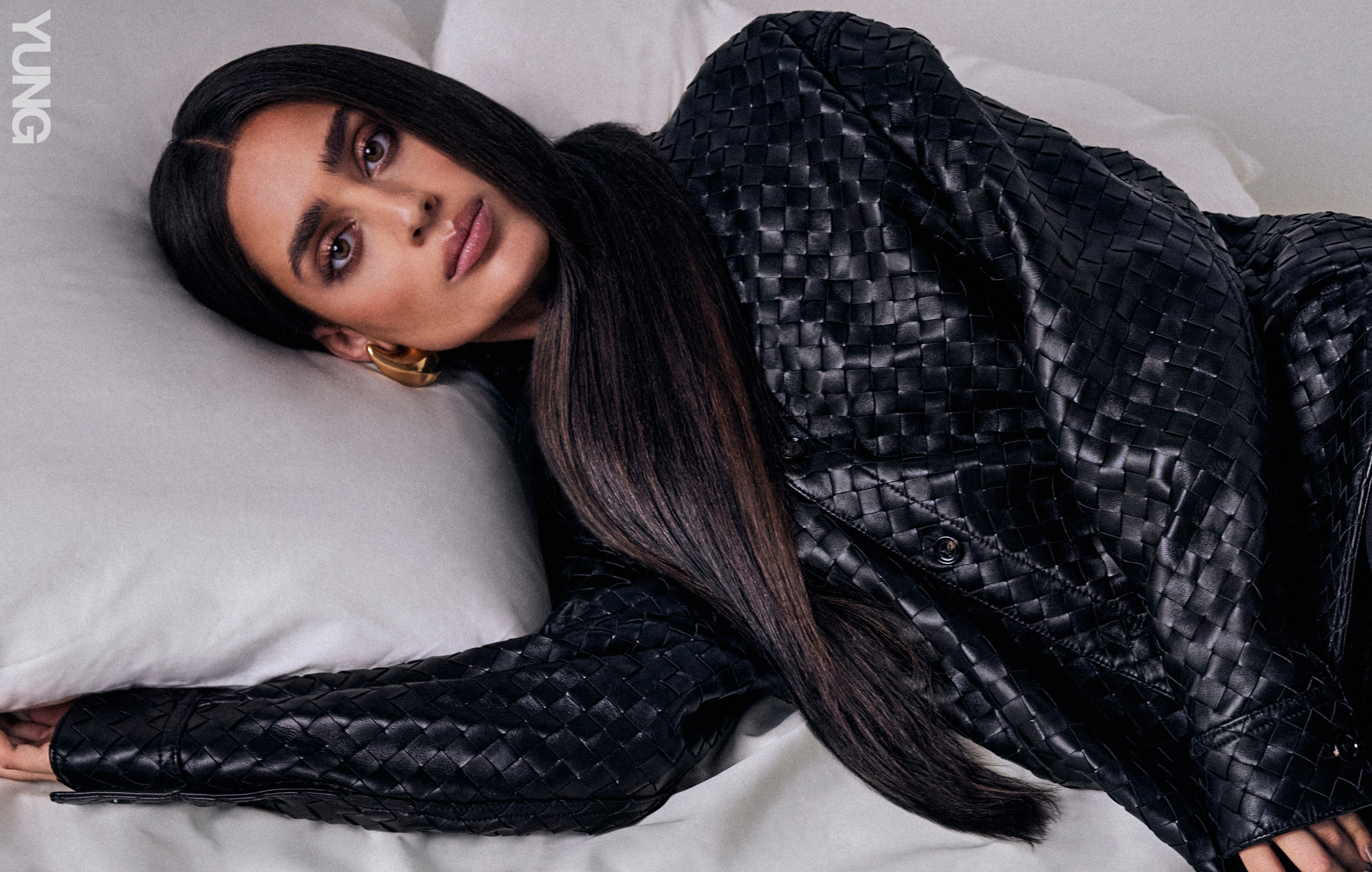
Her voice for Palestine has become one of her most defining attributes. Through her music and platform, she hopes to expand the narrative surrounding her homeland. “Across most media, Palestinians are defined as victims of conflict, but we are so much more than that,” she says. “I want to shed light on the beauty and richness of our culture, the depth of our history, and our penchant for excellence.”
Reflecting on 2024, Zeyne acknowledges the year’s unpredictability. “I don’t think this year went the way anyone expected,” she says. “But I’m grateful that despite the surprises, I was able to achieve certain goals while remaining respectful and mindful.”
As Zeyne looks to the future, she expresses gratitude for the journey so far. “Alhamdulillah, I’m so grateful for many moments this year—COLORS, Bottega Veneta, releasing Asli Ana, and working on my debut album,” she says. “But what I’m most grateful for is seeing my career unfold as I’ve always imagined, with the support of my family and friends.”
Zeyne’s eyes, always a focal point of her storytelling, now reflect an artist fully in her element — confident, resolute, and deeply connected to her purpose.
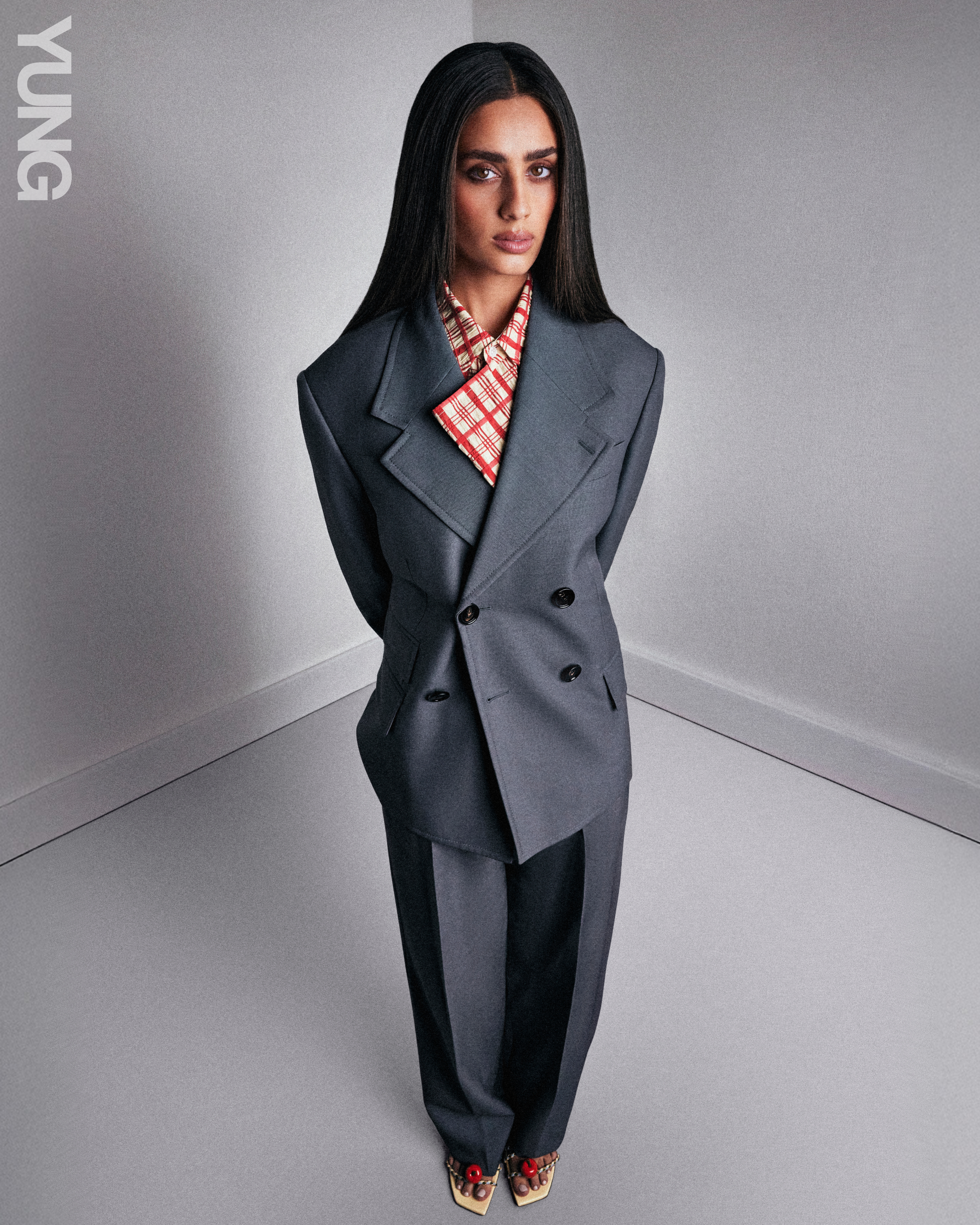
“I’ve gotten to know myself more over the past year,” she says. “In terms of my boundaries, values, and what I hold most important. Like many of us, I’ve been reflecting on how I choose to live my life and the implications of those choices, especially in light of everything happening in Palestine.”
To meet more incredible talents from across our region, visit The List.
